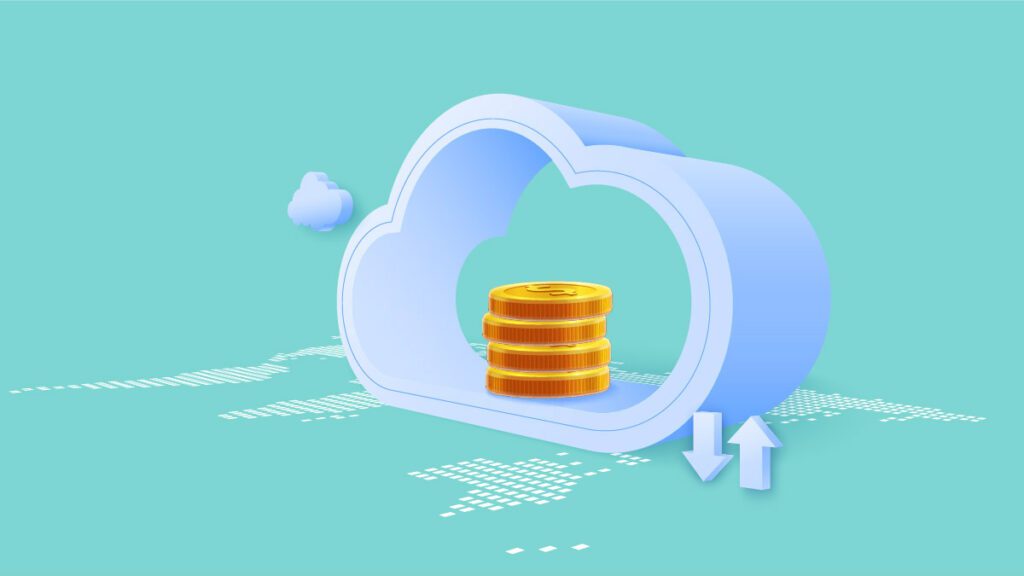Benefits of Cloud Computing Spending

What Are the Benefits of Cloud Computing Spending?
Cloud computing provides computing services, including servers, databases, storage, networking, software, analytics, and intelligence-over on the Internet (the cloud) to offer faster innovation, flexible resources, and economies of scale.
Cloud Computing Spending
Cloud computing is a substantial shift from the conventional way businesses operate with IT resources to benefit those businesses. Make sure to check an interesting piece we wrote about 5 benefits of using cloud computing for businesses
This category includes many benefits that different types of cloud computing offer and stand behind organizations’ decision to turn to cloud computing services:
Capital Expense of Buying Hardware
Cloud computing removes the capital expense of buying software and hardware, establishing and running on-site datacenters— the round-the-clock electricity for cooling and power, the frames of servers, and IT experts for managing the infrastructure.
The speed with a Few Clicks
Most cloud computing services are supplied with self-service and on-demand so extensive portions of computing resources can be provided in minutes, generally with just a few mouse clicks, providing businesses flexibility and taking the strain off capacity planning.
Productivity and Tracking
Datacenters on-site typically need a lot of “racking and stacking”—software patching, hardware setup, and other time-consuming IT management chores. Cloud computing withdraws the need for many of these tasks, so IT teams can spend time on gaining more critical business goals.
Performance
The most crucial cloud computing services conducted on a worldwide network of secure data centers are regularly elevated to the most delinquent generation of efficient and fast computing hardware. This presents several advantages over a single corporate data center, including decreased network latency for more effective economies of scale and applications.
Trustworthiness
Cloud computing creates data backup, business continuity, and more affordable disaster recovery since data can be reflected at numerous redundant sites on the cloud provider’s network.
Strengthen the Security Posture
Numerous cloud providers deliver a broad set of technologies, policies, and rules that support your security stance, saving your apps, data, and infrastructure from potential threats.
As for the market size of cloud computing, the global cloud computing market size was valued at $368.97 billion in 2021 and is expected to expand at a compound annual growth rate (CAGR) of 15.7 percent from 2022 to 2030.

The ways how cloud computing benefits can be monetized are lower costs and increased cost-effectiveness, developing a cloud computing application in just a few days, no maintenance, mobility, and access from anywhere, among others.
In addition, some of the savings from adopting a cloud solution are reducing the necessary amount of hardware, having less demanding labor and maintenance, and lower initial capital investment, amongst others. Capital expenditures that aim to build data centers to authorize cloud are not cheap, while governments invest in data centers for digital transformation.
Google Cloud Limit Spending
Thresholds are based on the actual costs. You’ll hit 100 percent of a $1000 budget when you’ve spent $1000. For example, indications note that when Google Cloud can give estimates (using machine learning, science), the user is expected to spend that precise amount by the end of the month.
If you set a forecasted threshold for 100 percent on your $1000 budget, the signal will activate as soon as Google Cloud suggests that your costs for the month will be $1000. Prediction thresholds are essential for learning where your prices may be trending and getting early alerts.
It is worth mentioning that Google will invest $1.2 billion on cloud computing in Germany by 2030 to expand its infrastructure and increase renewable energy use.
Summary
The cloud computing industry is witnessing a rise where users are more likely to use cloud computing in their business, even without realizing it.
If the user implements an online service to edit documents, send an email, watch movies or TV, listen to music, play games, or store pictures and other files, cloud computing is presumably driving it all behind the scenes. The first cloud computing services are hardly a decade old, however, various organizations are adopting the technology for all kinds of reasons.
Inside Telecom provides you with an extensive list of content covering all aspects of the technology industry. Keep an eye on the technology news section to stay informed and updated with our daily articles.
